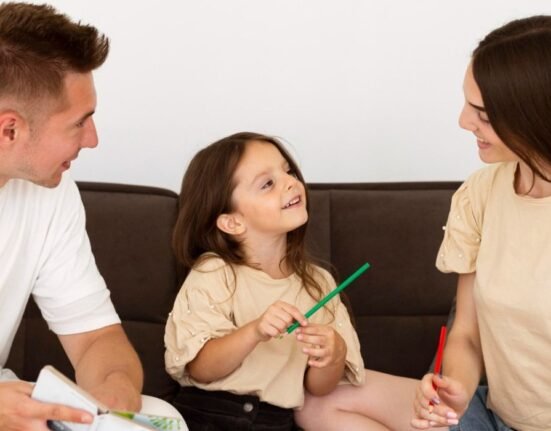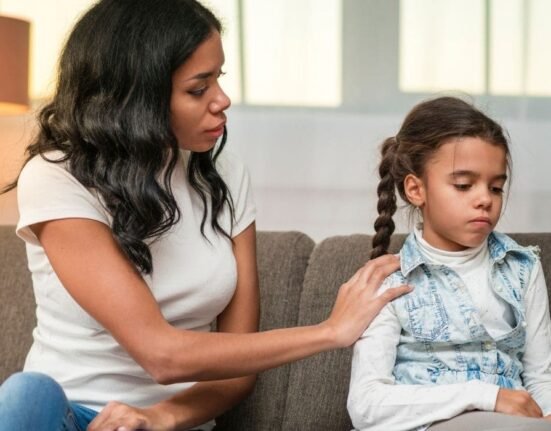For several months Reshma had been feeling uptight and tense when it was time for Rihaan, her 13-year-old to return from school. And for good reason. Rihaan had been a “good boy” up until 7th grade. Reshma had never even remotely suspected that she would have to worry about his grades because he had always been a diligent student. Come 8th grade, and something had gone south. Clearly. Reshma remembered the first open day of that year.
At the end of two hours of listening to critical remarks about him from his disappointed teachers, both mother and son were unnerved. Back in the car, an angry Reshma interrogated him, while Rihaan maintained a straight face. His lack of expression was baffling to her. No feeling guilty, no sorry, no tears. It was hard to say whether he was feeling bad about his fallen grades or if he was unabashed. Once home, Reshma had witnessed the most horrible meltdown, to the point that Rihaan had hit her, then hit himself and had locked himself in his room until dinner.
Over the months his demands for being allowed to miss school, watch movies and order his favourite food had grown more and more frequent. She no longer felt shocked, but increasingly helpless. She then remembered his tantrums when he had been told that he could not get the gaming laptop he wanted unless he performed well in his semester end exams. He had threatened to run away from home, told his parents that he hated them and that they were the worst parents a child could ever have. His arguments with his parents had become an everyday thing, as also Reshma’s agitation around the time he returned from school.
What is ODD/CD?
Rihaan is a classic example of a child with Oppositional Defiant Disorder (ODD), a frustrating disorder of childhood characterized by extreme irritability, violent temper tantrums, defiance of authority, and anger. A similar disorder is Conduct Disorder (CD) where the child not only opposes and defies authority but engages in other behaviour which involves rule breaking, cheating, lying, stealing money, running away from school, and being
cruel with humans and animals. Conduct disorder may show up when the child is 8 to 11 years old, or sometimes may begin in teenage.
Reshma, on the other hand, is a classic example of a parent who goes through frustration, anger, trying harder every time to impose discipline, using threats, then failing, and then waking up to a child who has now grown more defiant than before. Most parents deal with this loss of authority in the relationship by putting up a calm front, with a sarcastic expression on the face that says “who am I to preach at you anyways?”, while internally they struggle with anxiety about the child’s future and the pain of not knowing anymore this teenager who lives in their house. The meltdowns are usually so upsetting for the whole household that parents themselves begin to feel under constant threat.
Both ODD and CD can herald the child becoming delinquent and eventually even getting into criminal acts. Between 2 to 16% of children and teenagers have ODD or CD. Clearly, the disorders are not such that parents can afford to ignore or wait for the child to grow out of. Psychotherapy with the child alone is not enough because the problem involves the relationship the child shares with parents. A decade ago, therapists who worked with ODD and CD would advise parents to be firmer, not concede to the demands of the child, and to be consistent with each other when they laid down the rules. However, in recent years, therapy has moved in more democratic directions, leaving behind the more confrontational approach of the last decade.
What is Collaborative Problem Solving?
Ross Greene, an Associate Clinical Professor at the Harvard Medical school has done extensive research on Oppositional Defiant Disorder and has been the pioneering therapist in the Collaborative Problem-Solving (CPS) approach. He believes that children are not trying to be difficult or malicious. “Children will do well if they can” is his most important tagline. He believes that some children are born with more biological vulnerabilities to be inflexible and volatile. A significant number of them may also have ADHD (Attentional Deficit Hyperactivity Disorder).
Normally, around teen age, children develop complex communication skills, cognitive skills, the ability to plan, organize, solve problems and to tolerate greater frustration. However, children with ODD and CD may have some developmental delays in one or all of these areas, and these could be at the heart of their inflexibility and explosiveness. Perhaps Rihaan is not yet ready to cope up with complex mathematics in his 8th grade. Perhaps day after day school has become unbearable because he doesn’t understand complex concepts. The result: uncontrollable anger, directed at parents, who begin to feel that they have gone wrong in raising this child.
In Collaborative Problem Solving, parents are educated about the disorder and about the fact that the child is not intentionally troubling them. They are also assured that their child having ODD is not their fault. And that they need to be the child’s allies in coping up with something that has been hard.
Parents are encouraged to prioritise the demands they place on the child. Dr. Greene asks parents to categorise the demands into three baskets: A, those demands that are non-negotiable, for instance, safety behaviours, the child not being allowed to harm the self or others or damage property. B, demands about behaviours that are very important but which are not worth a power struggle that might result in a meltdown. For instance, completing school assignments. It is in this category that parents learn the greatest number of collaborative problem-solving skills.
Read More: Common Parenting Problems and Their Solutions
For example, the parent might negotiate with the child about an assignment, but if the child shows signs of extreme agitation, the parent learns to back off. Early in the CPS training, the child might be given concessions, a lot of them in fact, but melt downs are avoided at all costs. The child may be allowed to miss school or not study. And the parents may initially feel that they are conceding too much. But Dr. Greene points out that it is not about the parent winning, but about being able to work collaboratively with the child, and about avoiding meltdowns.
Finally, in the C category are demands that parents once made on the child, but which are not top priorities and definitely not worth a meltdown. For instance, visiting with relatives, or tidying up their room. Gradually children begin to stay calmer, get better at problem solving and the parent-child relationship also begins to heal.
In the Collaborative Problem-Solving approach, some amount of medication may be used initially if the temper tantrums are extremely intense. However, the emphasis is also on improving communication between parents and children. One of the most important and often neglected cause behind children’s meltdowns is their lack of communication skills. Sometimes the child may get very upset if the parents change their plans or demand too much or disagree with the child. If the child learns to accurately communicate this with the parent, a meltdown can be avoided.
Parents also must learn to be sensitive to triggers that lead to a meltdown. All the better if educators can also form a team to understand, and collaborate with the parents and the therapist to help the child in emotional regulation. Here’s the good news: If parents follow through diligently with it, eventually they do regain their authority, because children learn to plan, organise, solve problems and be clear in communication. Play therapists can also be important collaborators. Allowing children to release difficult emotions through play can greatly help to restore love in the parent child relationship. If you find yourself worked up around a dysregulated teenager, here are some useful tips:
- Do not hesitate to talk to other parents, especially those who have had older children. Knowing that others have navigated through similar difficult waters is reassuring.
- Therapists can help. Undoubtedly. But as parents, you will benefit in the long run if you also participate in sessions.
- Remember Dr. Greene’s message: your child does not intend to hurt you. They are stuck, and they need your help. They will do well if they can!
While concluding, I feel that one of the greatest gifts a parent could offer a teenager is the assurance that the child is more important to them than their achievements, and that they are prized unconditionally. Years later when a parent of a healthy, mature, well integrated young person looks back at those turbulent years of their teenager, they will swell with pride for the child and also for themselves. Dealing with an inflexible-explosive child is not easy by any means, but the results are definitely worth the effort.
Read More: Understanding Play Therapy Through the Lens of “Taare Zameen par”













Leave feedback about this